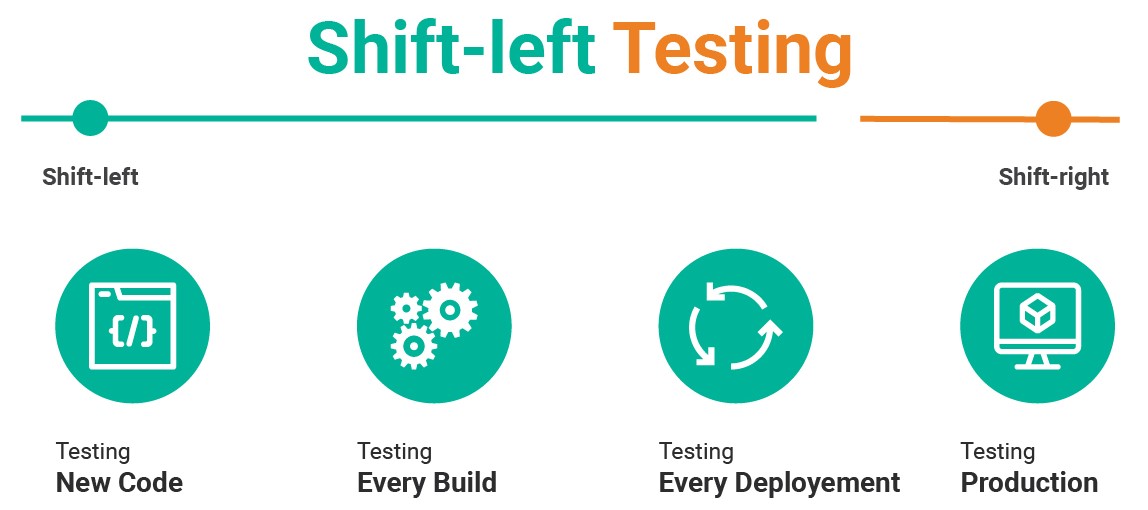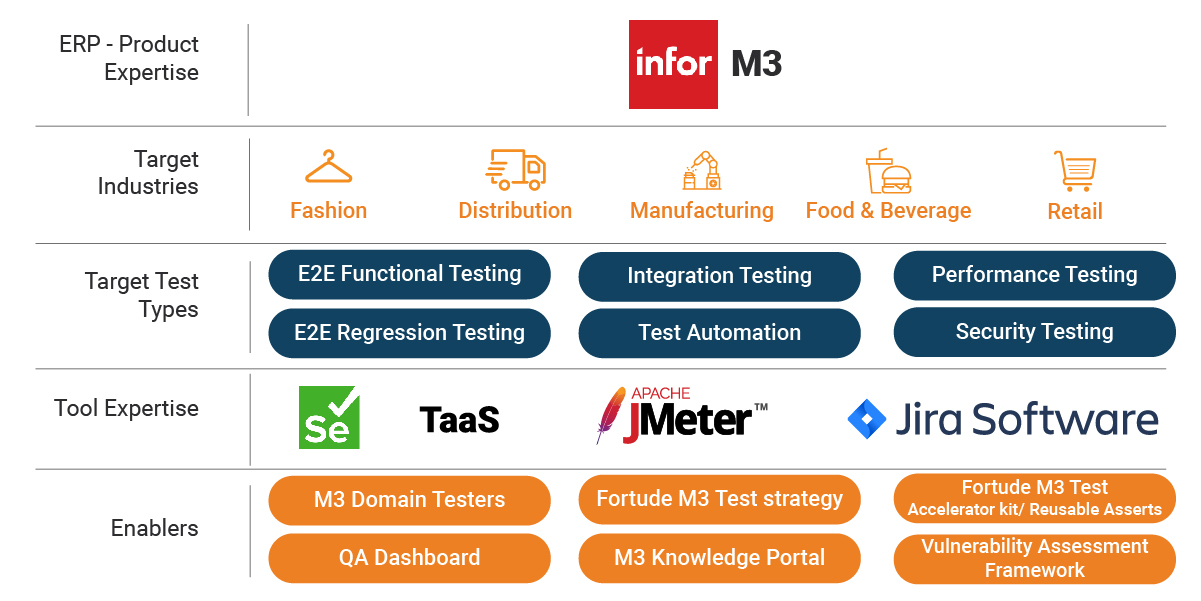Whether it’s a multi-site rollout or a minor fix, testing your ERP ensures that it works as expected. An error-free ERP implementation adds to the user experiences across the supply chain, and helps increase stakeholder productivity. A buggy, slow ERP can hinder operational efficiency. A carefully-planned ERP testing strategy ensures that the ERP performs optimally from the go-live itself, without hatching unprecedented errors, which not only require costly rework but also affect the smooth functioning of the organization’s operations.
In your M3/CloudSuite journey, testing may be required at any of the following stages:
- Implementation
- Version upgrade
- Strategic or optional product rollouts
- Product upgrade
- Product fix
During any one of these stages, an organization can face one or more of the following challenges:
- Unavailability of key users for testing
- Risk to business continuity due to gaps in testing
- Time and cost required for testing repetitive scenarios
- Maintaining test coverage and consistency
A solid Infor M3/CloudSuite testing strategy should foresee these challenges and must be equipped with skills and tools to respond to them effectively.
Shift-left or shift-right?
When testing M3/CloudSuite, adopting a shift-left approach can yield significant benefits, eliminating the pitfalls of the traditional shift-right approach.
In shift-right testing, testing occurs at the end of the ERP implementation life cycle, which is the far right of a typical implementation process.
In shift-left testing, testers do not wait until the end of the ERP implementation life cycle. Instead, testing occurs at each step of the life cycle. Shift-left testing practices can be successfully applied to ERP testing.

Due to the time advantage in shift-left testing, testers have the freedom to develop optimal test plan and test design specifications, analyze requirements, identify correct data combinations, and to validate business flows, including end-to-end integrations. The shift-left approach significantly reduces the possibility of showstopping errors from occurring at the ERP go-live and ensures functional and technical accuracy, the first time.

Testing Center of Excellence (TCoE)
Fortude executes its unique Infor M3/CloudSuite testing strategy through a Testing Center of Excellence (TCoE). A TCoE brings together strategy, resources, testing methodologies, best practices, automation, and tools as a centralized service. The TCoE measures the quality of every phase of the Infor M3/CloudSuite implementation through industry-known test metrics such as Requirement Clarity Index, Defect Removal Efficiency (DRE), and Defect Severity Index (DSI). Fortude’s in-house-developed industry-specific test accelerators ensure high quality, reduce time-to-market, and cut costs.
Fortude can help you to plan your testing end-to-end by selecting the appropriate testing types. Our TCoE is equipped with domain testers, reusable assets, and a range of enablers to be used in both manual and automation testing.

A test automation framework developed by Infor, Infor Testing as a service (TaaS) is a unique tool in the Fortude M3/CloudSuite testing strategy.
Infor TaaS provides a range of benefits:
- Cycle Time Reduction: Due to parallel execution and the speed of test execution, TaaS reduces testing effort by nearly 90%.
- Business Continuity Assurance: Assures quality of production releases with proper test coverage and maintain consistency of the test execution.
- Cost Reduction (ROI): Reduces cost by reusing automated baseline test scripts and assigning fewer QA resources.
- 24×7 Test Climate: Facilitate automated test execution according to the client’s schedule and data.
- Virtual Execution: Scripts can be executed remotely, and results can be checked in a very user-friendly manner.
Our methodology has ensured smooth ERP Rollout/Upgrade experience to our clients with proven results.
When speaking to a potential business partner regarding your M3/CloudSuite testing, it is reasonable to ask about their testing strategy and their experience circumventing common pitfalls in ERP testing. If you invest in a robust testing strategy, it will reap rewards throughout your M3/CloudSuite journey.
Written by Harshana Kuruppu – Head of QA at Fortude
Subscribe to our blog to know all the things we do


